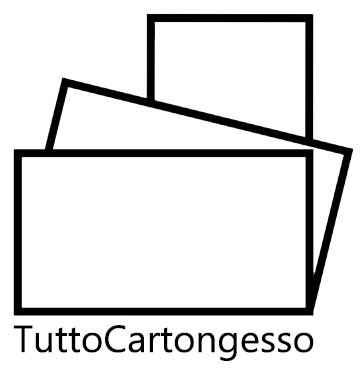HOW TO GLUE WALLPAPER ON PLASTERBOARD
Do you want to give your home warmth, unique atmospheres capable of giving you intimacy and living comfort?
Very good!
This is the article for you!
Today we will talk about wallpaper and how to glue it on drywall.
Wallpaper
Thanks to the vast range of colors, designs, fabric textures and types of rolls, wallpaper is once again making a comeback in the field of civil renovations.
This new boom is favored by the ease of application on plasterboard surfaces.
Surface preparation
First of all, it is correct to state that the quality of a drywall largely depends on the accuracy of the grouting.
This is where you will have to intervene before applying the wallpaper.
For example, in the case of protruding screws, you will have to proceed to insert them correctly in the profile, or if they are crooked and create an irregular edge around them, then you will have to remove them and insert new ones at a distance of about 1 cm from the previous hole.
Subsequently, any dents or scratches on the surface will be analyzed. If present, they must be repaired or leveled with plaster putty. Depending on the extent of the damage, more applications may be required.
Another important phase is the grouting of the joints, the heads of the screws and the corners of the wall which we have already talked about in other articles on our site.
At the end of all the operations described above, to check the correct linearity of the wall and that it is free of defects, you can use a LED lamp by directing the light on the wall. If you still notice imperfections, we can remove them with fine-grained putty.
Calculation of the card required
After preparing the wallpaper application surface, we proceed to the correct calculation of the rolls needed to cover the walls.
Starting from the corner of the wall, using a "plumb" laser or a plumb line, draw a line on the wall from the ceiling to the ground that will correspond to the size of the roll and will help you glue it straight without errors. You can proceed in this way by marking the whole room that will be ready to be decorated in this way.
Applying the glue
The glue is applied directly to the back of the wallpaper roll which is then attached to the wall.
In case of heavy or highly decorated paper, it is recommended to put glue on the wall as well.
We remind you that, wet with glue, the rolls can stretch a little in length and width. Pay attention when you attach them to the wall!
Final stage
After gluing the wallpaper rolls to the drywall, we level them with a large soft-bristled brush or a smooth roller. This operation will expel the air from under the paper avoiding the formation of unsightly bubbles.
The excess glue, which will come out after this phase, must be removed immediately with a rag, otherwise after drying there will be shiny traces of glue on the wall that will ruin all the work.
Finishing and trimming of excess parts
Wallpaper is usually glued by placing one roll next to the other, paying particular attention to matching any designs or geometries.
However, it may happen that in some points this operation is not possible or does not make the job easy and so it will be better to proceed by overlapping the rolls.
In this case, a part of the roll will be superimposed on the paper already glued to the wall and the excess strip will be cut using a sharp cutter (NB: it is advisable not to cut the paper if it is impregnated with glue. Wait until it is all dry).
Tips Tuttocartongesso
Here are some suggestions for achieving optimal work:
- Start gluing the rolls from the windows or doors to make the overlaps or overlaps as invisible as possible;
- Calculate where the lights will be positioned and try not to match the overlaps or overlaps in those points because the light will tend to highlight the defects;
- The glue must always be chosen according to the type of wallpaper to be used;
- If for some reason the edges of the paper should come off the wall, they can be glued with pva glue;
- Do not turn on air conditioners or radiators until the background is completely dry;
- Carefully prepare the surface of the wall because in the presence of irregularities the wallpaper will wrinkle creating ugly aesthetic effects;
- Keep the room temperature under control throughout the process of fixing the paper to the wall.
ATTENTION: as this type of intervention is very delicate, the advice is to contact a highly specialized company that can help you.
Do you want to get other attractive ideas suitable for your way of being?
Contact us for talk to our Life Style.
Living in an environment that reflects you has never been easier!
Did you need this information?
Share them with whoever you want on social networks.
